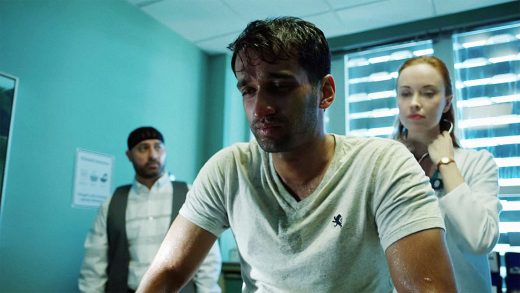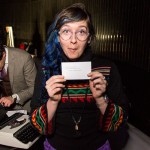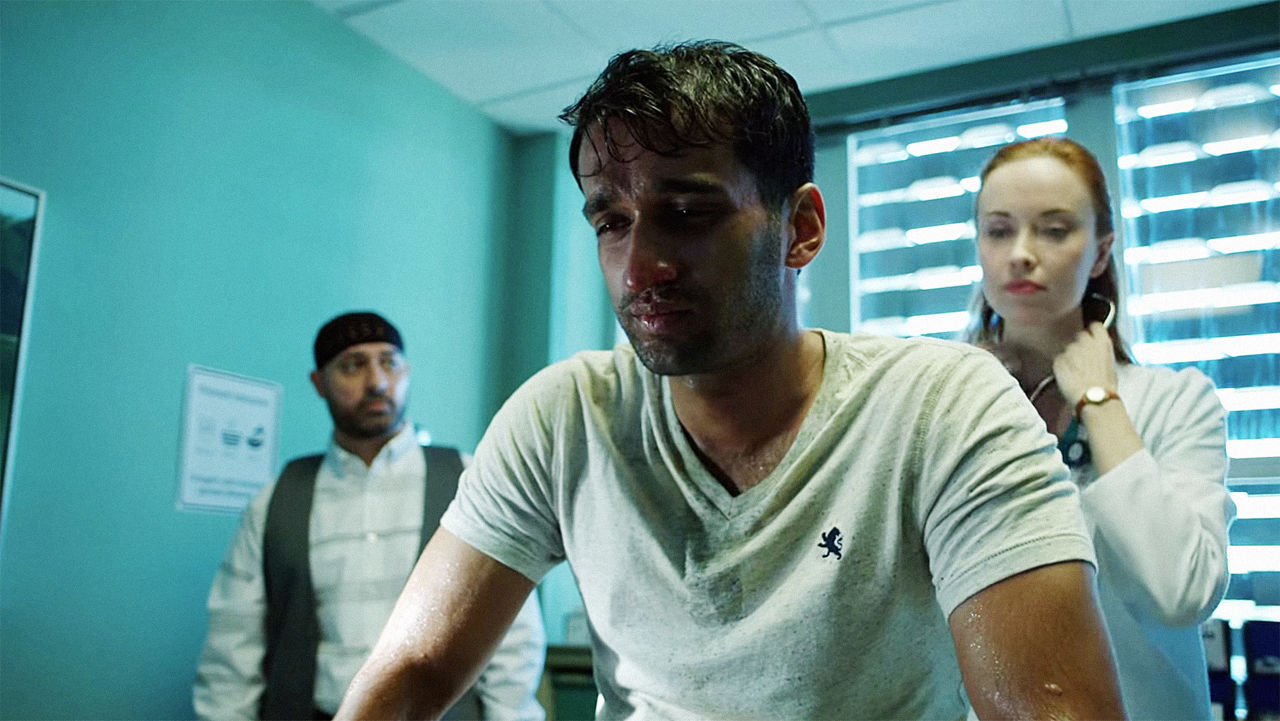“Containment” Showrunner Julie Plec Looks Back On Her Long Journey To Writing
While many writers have a fervent—and sometimes even delusional—belief in their abilities, Julie Plec, the head writer and showrunner of the CW’s gothic romance The Vampire Diaries (which she cocreated with writer Kevin Williamson) and its spin-off The Originals (which she created on her own), spent years believing that she wasn’t a writer.
She traces this long-held conviction back to a class she took when she was a student at Northwestern University. “I had taken a playwriting class in college that another friend of mine, Greg Berlanti [currently the executive producer of The Flash, Arrow, and Supergirl], had taken, and it had cemented his love for the craft and made him certain that this was something that he could do and that this was his passion. I had the opposite experience,” Plec says. “I hated it. I was terrible at it. It was a miserable experience, and I came out of that being like, well, at least I know I’m not a writer.”
It’s actually hard to believe Plec ever felt this way because she is so successful and prolific. She has written several episodes of The Vampire Diaries and The Originals, and more recently scripted the pilot for and several episodes of the new limited series Containment. Based on the Belgian series Cordon about a mysterious viral outbreak, the show premieres on the CW tonight, and Plec is also its showrunner.
Here, Plec looks back on the evolution of her career and how she finally broke free of her “I’m not a writer” mindset.
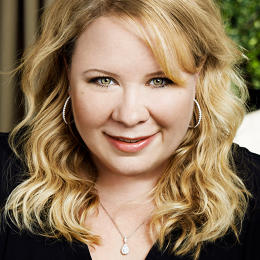
The Early Days In Hollywood
Plec, who grew up in a suburb of Chicago, didn’t think she was cut out to be a writer in college, but she did want to find a place in the entertainment industry. Landing a gig as an assistant to horror master Wes Craven set her on that path. It was only her second job in the entertainment business, and she loved it. “There were stacks and stacks of horror scripts that needed to be read. They put a stack on my desk and asked me to start reading, and I did. That’s what the bulk of my job was in that first six months I worked for him—just going through material,” she recalls.
Plec soon realized she had a knack for reading a script and writing a fairly thoughtful analysis and decided she would make a career for herself in development. “That was an epiphany I had early on. I thought, ‘Finally, something that’s my fit. That’s what I should be doing,'” she says.
After two years, Plec was promoted from assistant to Craven’s director of development, a job she held for another two years. “They were so good to me. They really saw the value of what I was contributing. We were very close and tight-knit as a group. Marianne Maddalena, Wes’s partner, really took me under her wing and made sure that I got credit where credit was due,” Plec says. “She was a woman perfectly happy to shower praise and draw attention to the skills of another woman, which is something that I learned early on, and I really appreciate.”
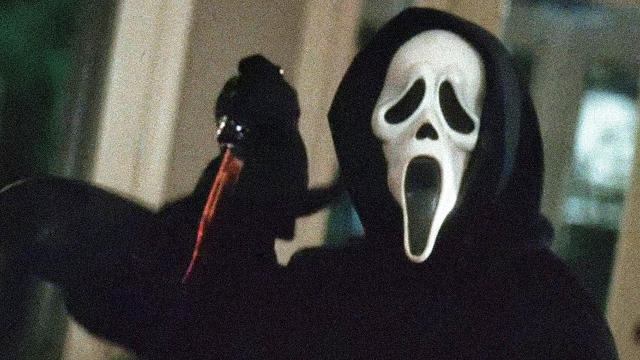
A Dip Into Writing Via Dawson’s Creek
After four years working at Craven’s company, Plec left to work for Kevin Williamson. “I met Kevin because one of the scripts that I read when I was reading all of Wes’s material early on was Scary Movie, which was the original title of Scream. It had come in as a spec that his current director of development, Lisa Harrison, had brought in, and I read it as she was reading it. We were both freaking out because we loved it so much and were desperate for Wes to do it,” she recalls.
Plec really got to know Williamson during the making of Scream 2, “I was, basically, the development executive for Wes during that movie, and that’s how we got our creative relationship really solid. Kevin got an opportunity to have his own deal and his own company, and he asked me to come run it with him,” Plec says.
Plec brought some talented writers into the fold, hiring Berlanti to write for Dawson’s Creek and helping to launch his career by doing so, and giving Damon Lindelof, who would go on to Lost and The Leftovers, a job writing for Wasteland.
It was while working with Williamson that Plec started writing. “We were just always behind. Everything that we ever did, we were late. He was wildly busy, so any time that we were trying to get something done, I would just lend a hand. I would pitch in. I would try to write the framework of something so I could hand it over to him so that he could fix it, flesh it out. When you’re that busy, you’re an assembly line, and you have to get it done,” Plec says. “What I was doing was trying to write like him so that he could then just take it and make it better.”
At that point, Plec still didn’t see herself as a writer but rather someone who was emulating Williamson’s style. She thought, “He’s doing the writing. I’m just helping.”
After two years working with Williamson, there were at least a dozen episodes of Dawson’s Creek that had aired on television and included some dialogue Plec had written. “If you write a good line, you write a good line, and the best line wins in television,” she notes. “It doesn’t matter if you’re the guy who gets the coffee or if you’re the showrunner—best line wins. That’s the beauty of television collaboration.”
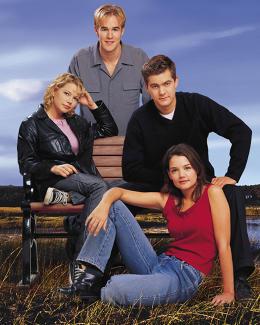
The Brewing Epiphany
If you think that hearing the witty teens on Dawson’s Creek speaking her lines made Plec realize she was meant to write, well, you would be wrong.
After she and Williamson parted ways, “I had taken another job that I didn’t particularly like. Then probably a year or two had passed without me holding a steady executive job, and I didn’t want one, so I wasn’t looking,” Plec says. “I thought, ‘Oh, I’ll be an independent producer. Oh, I’ll be a manager.’ I was going through all those things in my head and one night, late at night, I was having what I would now describe as probably a panic attack because there were so many unknowns. An almost literal voice came into my head telling me, ‘You need to write.’ I don’t pray. I’m not a deeply religious person. If I were a deeply religious person, I would say that I got a message from God.”
And then she began writing . . . uh, no.
“That was really the kind of breakthrough moment, which then translated into, hilariously, me producing a movie for the next two years,” Plec says.
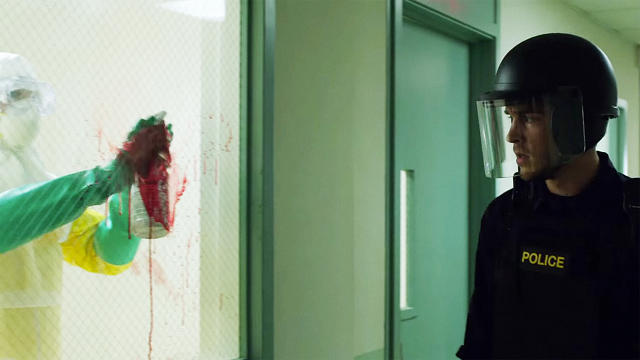
She Finally Makes A Move
We are getting to the point in Plec’s career story where she takes the leap.
Plec accepted a gig as a non-writing producer on the ABC Family teen drama series Kyle XY, thinking, “If I can get the show on the air, then maybe they’ll give me the opportunity to write an episode.”
And that’s what happened. “The EP, David Himelfarb, just looked at me one day and said, ‘You should write an episode because you know the show better than anybody,'” Plec says.
Excited for the opportunity, Plec wrote a script for the show’s fourth episode, and it was well received. “The first words out of the network executive’s mouth were, ‘We always knew you had this in you. Now, we are so happy to be proven right.’ It was a thrill,” she says.
Did she finally believe she was a writer at that point? Yes. “That was the validation,” she confirms.
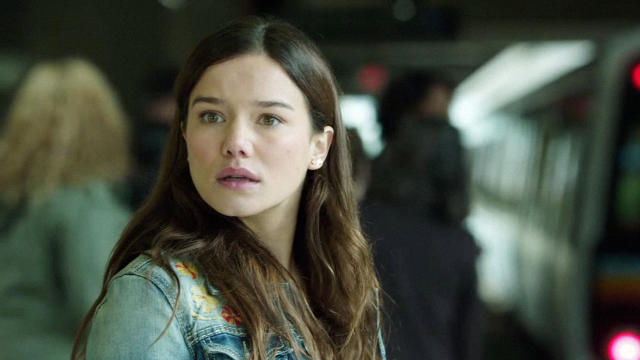
Why Did It Take So Long?
While Plec was slow to see the obvious, her colleagues through the years encouraged her to own being a writer. “I was developing with my friend Gren Wells. She’s a screenwriter, and I’d make notes in the margins, and I’d pitch dialogue, and I’d pitch structure. She would say to me all the time, ‘You know you’re a writer.’ I’d like like, ‘No, trust me, I’m not. I’m really not.’ “
Berlanti also pointed it out to her. “Greg would say that to me all the time because I was constantly developing with him. He and I were actually writing a pilot together at one point, which is funny because I thought he was so generous by wanting to share writing credit with me when I clearly wasn’t a writer,” Plec says.
Looking back and analyzing why she took so long to embrace her talent, Plec chalks it up to her practical nature as opposed to a crippling lack of confidence.
“As a kid, I was always decent at everything that I tried. Whether it be sports or theater or school, I excelled in certain areas more than others, but I had a natural ability—I could pick up a tennis racquet and hit the ball. But when I got to a place in any level of sport or club or school where I felt like I wasn’t good enough, I would move on to something else,” she explains, and that’s an approach she continued into adulthood.
“In doing that, I never quite latched onto the thing that I loved until it all solidified 10 to 15 years into my career,” she muses.
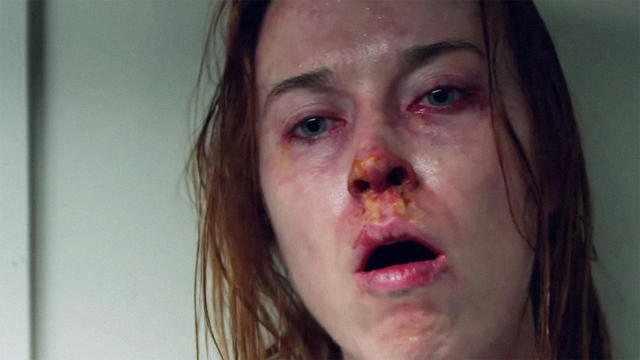
No Regrets
Looking back, Plec thinks her unusual path to writing for television—coming at it with the experience she got in development and producing—worked to her advantage. “Here’s the thing: I had the relative talent, I suppose,” she reflects. “Obviously, people liked the things that I wrote, and they made it through, and they got filmed. But had I at 26 said, ‘Hey, great news, everybody, I’m a writer!’ and tried to explore that career, I think it would have been a disaster. I don’t think I knew shit, you know? I think that 10 years of development and creative producing and working side by side with Kevin and with Greg and reading just from an outlier point of view—I had read so many scripts over those years that just by osmosis, I must have learned something.”
(30)

